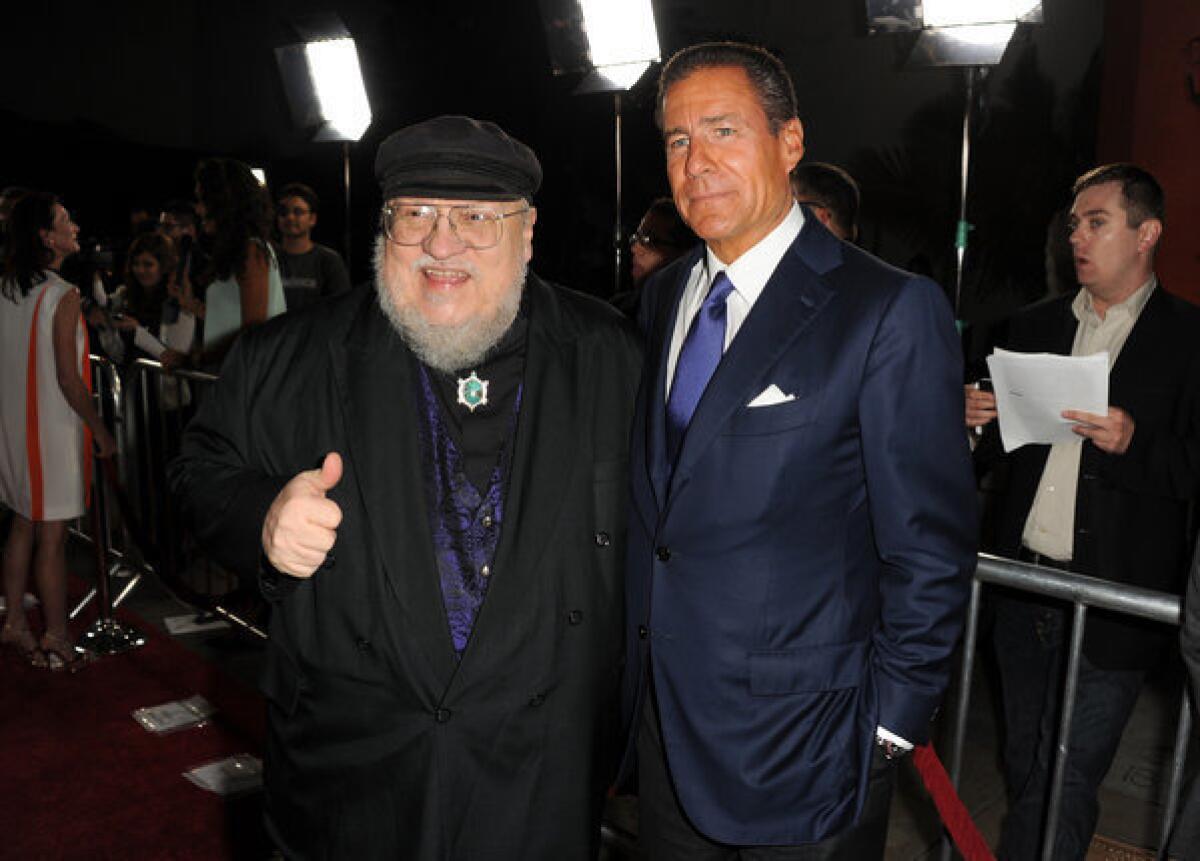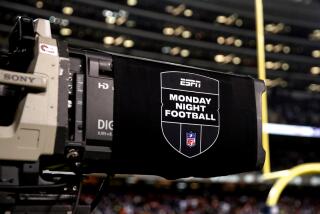HBO gives pay-TV cord-cutters a glimmer of hope

Despite the media buzz about “cord cutting” -- that is, dumping one’s expensive pay-TV service in favor of inexpensive online video sites such as Hulu and Vudu -- relatively few people actually do it. According to a recent Nielsen report, only 5 million U.S. homes are expected to shift away from conventional sources of TV this year. That’s less than 5%.
It’s safe to assume that many cable and satellite TV customers stay put because they get something from pay TV that they don’t think they’ll get online. And one of the biggest exclusives has been the original programming on HBO, such as “Game of Thrones” and “Girls.” The network makes its shows available online through a service called HBO Go, but it’s available only to people who subscribe to HBO through a pay-TV service.
Earlier this week, HBO Chief Executive Richard Plepler reiterated his belief that the network should continue to withhold its online feed from cord-cutters -- for now. But he told Reuters that the company might join with Internet service providers in offering broadband service bundled with HBO Go for an additional $10 to $15 a month.
That’s more than Netflix charges for access to a significantly larger library of streaming video, but then, Netflix doesn’t have “Game of Thrones.” Or “Girls.” Or any other HBO series, for that matter. It wouldn’t make much sense economically for people to dump cable if it cost $10 a month or more to watch each of their favorite channels. But they might be willing to pay a premium for one or two channels with exceptional content, and HBO is unusually well positioned to make that pitch.
For Plepler, the crucial question is how to prevent an a la carte offering online from diminishing the revenue the company receives from pay-TV services. But at least he seems willing to consider how to do that. In the past, HBO was so concerned about hurting its cable- and satellite-TV partners that it wouldn’t even entertain the idea of opening HBO Go up to consumers without a pay-TV subscription.
So, how long will cord-cutters have to wait? Evidently until someone shows HBO a plan that generates incremental profits rather than cannibalizing existing revenue. That’s the gist of the comments that Jeff Bewkes, chief exective of HBO’s parent company Time Warner, made about HBO Go earlier this month, according to Home Media Magazine. And by someone, he meant a company other than Netflix, Amazon Prime or other subscription-based online video service.
Discerning which services are incremental and which are cannibalistic has been a problem for media companies as they try to adapt to the broadband era. The major record labels are a good example; their fear of undermining CD sales caused them to wait far too long to embrace online distribution.
HBO could probably open up access to HBO Go without fear of fomenting a cord-cutting revolution; there are plenty of other cable networks holding popular content back from the Web. Still, the number of people abandoning pay TV is growing; according to Nielsen, 2 1/2 times as a many households are expected to fall into that category in 2013 as in 2007. Those numbers are still too small even to be considered a niche, but how long will that be true?
ALSO:
Keeping bars open to 4 a.m.? It’s a bad idea
Healthcare reform and the incentive to keep spending
Want to empower working mothers? Call on government for help
Follow Jon Healey on Twitter @jcahealey
More to Read
A cure for the common opinion
Get thought-provoking perspectives with our weekly newsletter.
You may occasionally receive promotional content from the Los Angeles Times.







